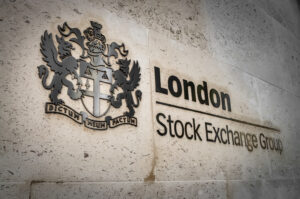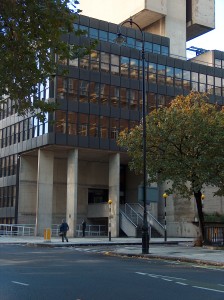Dr. Daniele D’Alvia (Associate Research Fellow in Financial Regulation at IALS and Teaching Fellow in Banking and Finance Law at CCLS – QMUL); and Prof. Milos Vulanovic (Professor in Finance at EDHEC Business School Paris)
On 3 March 2021, Lord Jonathan Hill’s review of the UK’s listing regime recommended a series of reforms to make the UK a more attractive venue for initial public offerings (IPOs) post-Brexit. The Hill Report is the London Stock Exchange’s answer to the ‘SPAC craze’ in the US. Unlike the US, there still is not an organic and comprehensive legal discipline for SPACs in Europe. Therefore, the UK would like to position itself as the new, sophisticated jurisdiction for accommodating SPACs (Special Purpose Acquisition Companies).
What is a SPAC?
SPACs are cash-shell companies set up with a special purpose: to conduct an acquisition. The capital is raised via an IPO of unit securities composed of common shares and warrants. The IPO proceeds are then placed into an escrow account with the most credible financial institution until the acquisition takes place. The acquisition phase where the capital is drawn-down is defined in SPAC jargon as ‘De-SPAC’, which will end with listing the newly merged entity by virtue of a reverse takeover. The acquisition and the subsequent release of funds generally occur between 24 and 36 months from the incorporation of the SPAC.
SPACs are risk-free investments until the moment of the business combination. Once the private company becomes public through a reverse takeover, the same operational, financial or reputational risks apply as with any other public company. If the acquisition fails, the SPAC would be wound up, and the entire amount of invested funds returned to investors.
The Hill Report and the FCA Consultation Paper
The UK Takeover Code is imposing a presumption that a SPAC has to suspend the trading of shares once a target is acquired because of reverse takeover rules. This approach is neither accommodating nor competitive in the SPAC arena. Shareholders’ redemptions are suspended, and investors are locked-in until the FCA (Financial Conduct Authority) provides the SPAC with a clearance. Hence, the Hill Report has called for a reformulation of this rule in respect to SPACs.
The UK Government is expected to examine those recommendations and on 30 April 2021 the FCA opened its Consultation Paper (CP) (CP21/10). The CP highlights the complexity of SPACs as investment vehicles, and their high-risk profiles for investors. The consultation is seeking, inter alia, feedback on the following points:
- Ring-fencing proceeds: money from public investors shall be ring-fenced to either fund an acquisition or be returned to shareholders.
- Shareholders’ approval and redemption: SPAC sponsor(s) shall secure first the consent of public investors on every proposed business combination, allowing those who do not consent to exit.
- Time limits: SPACs should find an acquisition target within two years of admission to listing with a possible 12-month extension.
- Disclosure: establishing a system through which the SPAC sponsor(s) disclose any risk related to the IPO, announcement and conclusion of a reverse takeover.
- Size thresholds: setting a minimum amount of £200 million to be raised when a SPAC’s shares are initially listed.
Analysis
It seems that the FCA has clearly (mis)understood SPACs, except for points 1, 2, and 4 above. A time extension of the SPAC can be costly on the side of the sponsor(s). The FCA should have opened a consultation on the de-coupling mechanism between voting and redemption rights. This could facilitate acquisitions as well as providing investors with a safe way-out (point 2).
The FCA is calling for a minimum size threshold of £200 million, excluding any funds the sponsors have provided either in cash or shares (point 5). This is not the market capitalisation under LR 2.2.7R that refers to the aggregate market value. By contrast, the thresholds refer to the amount raised from public investors at the IPO. We feel that this is possibly against a sophisticated SPAC framework. This encourages only high-level investor participation and might cause a swift exit of sponsor(s) from London to more flexible exchanges such as Borsa Italiana S.p.A. in Italy or Euronext in Amsterdam.
Furthermore, the FCA should have focused on the percentage of the IPO proceeds to be held on trust, and the possibility of including the appointment of independent directors in the SPACs’ board of directors. The CP is silent on those features. Since 2008, NASDAQ rules (Rule IM-501-2) and NYSE rules (Rule 102.06) impose rules on escrow account proceeds. Additionally, they require the appointment of independent directors in SPACs’ board of directors.
SPAC sponsors unable to meet the proposed conditions, or those choosing not to, will continue to be subjected to a presumption of suspension. We believe that this is an unjustified and irrational penalisation for SPACs and sponsors alike and predict almost zero listings in London if the UK Government implements this regulatory approach.
We find that the FCA has taken a hyper-active regulatory approach. If the FCA proposes changes, based and modelled on the American listing requirements as already codified in NYSE and NASDAQ today, then the UK could become the new ‘SPAC-hub’ in Europe.


